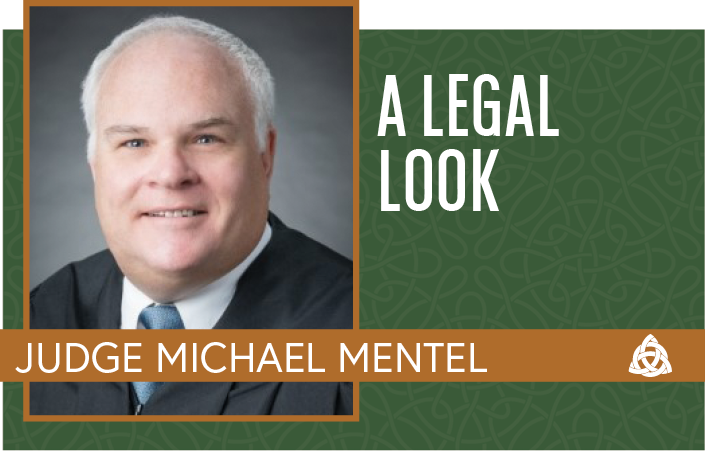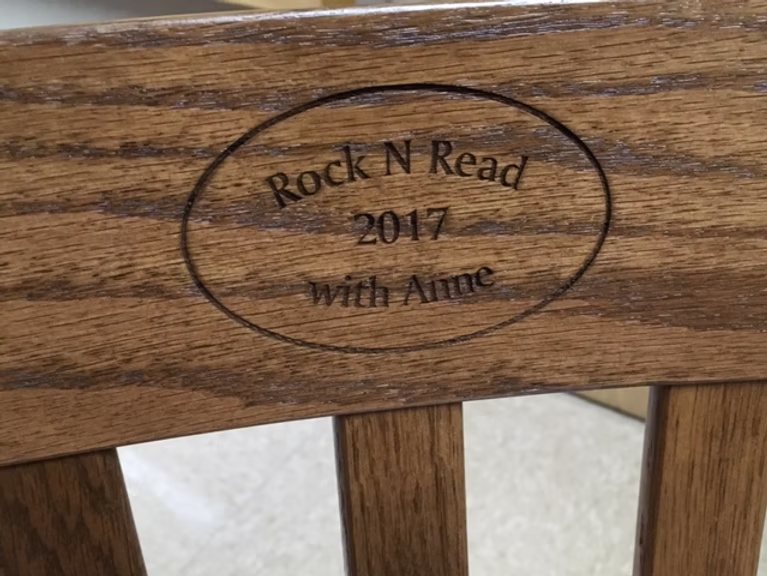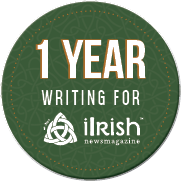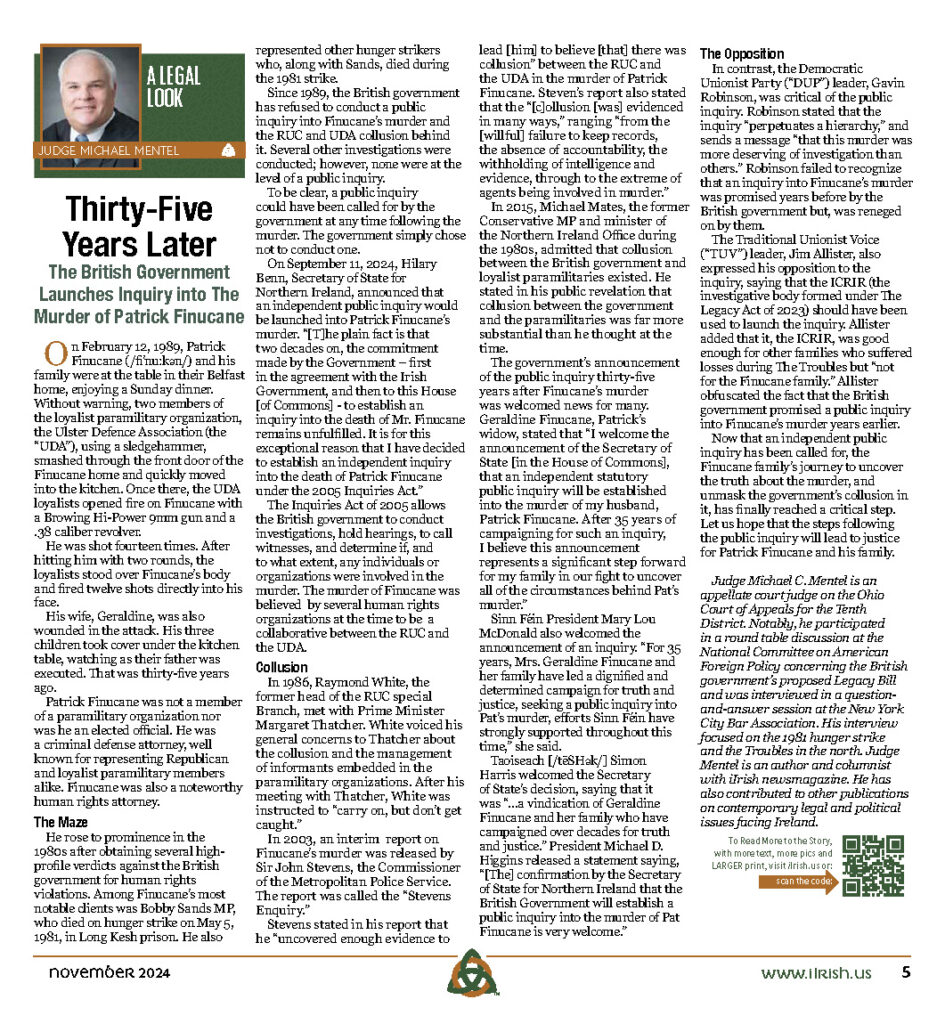
By Judge Michael Mentel
The British Government Launches an Inquiry into the Murder of Patrick Finucane
On February 12, 1989, Patrick Finucane (/fi’nu:kǝn/) and his family were at the table in their Belfast home, enjoying a Sunday dinner. Without warning, two members of the loyalist paramilitary organization, the Ulster Defence Association (the “UDA”), using a sledgehammer, smashed through the front door of the Finucane home and quickly moved into the kitchen. Once there, the UDA loyalists opened fire on Finucane with a Browing Hi-Power 9mm gun and a .38 caliber revolver.
He was shot fourteen times. After hitting him with two rounds, the loyalists stood over Finucane’s body and fired twelve shots directly into his face.
His wife, Geraldine, was also wounded in the attack. His three children took cover under the kitchen table, watching as their father was executed. That was thirty-five years ago.
Patrick Finucane was not a member of a paramilitary organization nor was he an elected official. He was a criminal defense attorney, well known for representing Republican and loyalist paramilitary members alike. Finucane was also a noteworthy human rights attorney.
The Maze
He rose to prominence in the 1980s after obtaining several high-profile verdicts against the British government for human rights violations. Among Finucane’s most notable clients was Bobby Sands MP, who died on hunger strike on May 5, 1981, in Long Kesh prison. He also represented other hunger strikers who, along with Sands, died during the 1981 strike.
Since 1989, the British government has refused to conduct a public inquiry into Finucane’s murder and the RUC and UDA collusion behind it. Several other investigations were conducted; however, none were at the level of a public inquiry.
To be clear, a public inquiry could have been called for by the government at any time following the murder. The government simply chose not to conduct one.
On September 11, 2024, Hilary Benn, Secretary of State for Northern Ireland, announced that an independent public inquiry would be launched into Patrick Finucane’s murder. “[T]he plain fact is that two decades on, the commitment made by the Government – first in the agreement with the Irish Government, and then to this House [of Commons] – to establish an inquiry into the death of Mr. Finucane remains unfulfilled. It is for this exceptional reason that I have decided to establish an independent inquiry into the death of Patrick Finucane under the 2005 Inquiries Act.”
The Inquiries Act of 2005 allows the British government to conduct investigations, hold hearings, to call witnesses, and determine if, and to what extent, any individuals or organizations were involved in the murder. The murder of Finucane was believed by several human rights organizations at the time to be a collaborative between the RUC and the UDA.
Collusion
In 1986, Raymond White, the former head of the RUC special Branch, met with Prime Minister Margaret Thatcher. White voiced his general concerns to Thatcher about the collusion and the management of informants embedded in the paramilitary organizations. After his meeting with Thatcher, White was instructed to “carry on, but don’t get caught.”
In 2003, an interim report on Finucane’s murder was released by Sir John Stevens, the Commissioner of the Metropolitan Police Service. The report was called the “Stevens Enquiry.”
Stevens stated in his report that he “uncovered enough evidence to lead [him] to believe [that] there was collusion” between the RUC and the UDA in the murder of Patrick Finucane. Steven’s report also stated that the “[c]ollusion [was] evidenced in many ways,” ranging “from the [willful] failure to keep records, the absence of accountability, the withholding of intelligence and evidence, through to the extreme of agents being involved in murder.”
In 2015, Michael Mates, the former Conservative MP and minister of the Northern Ireland Office during the 1980s, admitted that collusion between the British government and loyalist paramilitaries existed. He stated in his public revelation that collusion between the government and the paramilitaries was far more substantial than he thought at the time.
The government’s announcement of the public inquiry thirty-five years after Finucane’s murder was welcomed news for many. Geraldine Finucane, Patrick’s widow, stated that “I welcome the announcement of the Secretary of State [in the House of Commons], that an independent statutory public inquiry will be established into the murder of my husband, Patrick Finucane. After 35 years of campaigning for such an inquiry, I believe this announcement represents a significant step forward for my family in our fight to uncover all of thecircumstances behind Pat’s murder.”
Sinn Féin President Mary Lou McDonald also welcomed the announcement of an inquiry. “For 35 years, Mrs. Geraldine Finucane and her family have led a dignified and determined campaign for truth and justice, seeking a public inquiry into Pat’s murder, efforts Sinn Féin have strongly supported throughout this time,” she said.
Taoiseach [/tēSHǝk/] Simon Harris welcomed the Secretary of State’s decision, saying that it was “…a vindication of Geraldine Finucane and her family who have campaigned over decades for truth and justice.”President Michael D. Higgins released a statement saying, “[The] confirmation by the Secretary of State for Northern Ireland that the British Government will establish a public inquiry into the murder of Pat Finucane is very welcome.”
The Opposition
In contrast, the Democratic Unionist Party (“DUP”) leader, Gavin Robinson, was critical of the public inquiry. Robinson stated that the inquiry “perpetuates a hierarchy,” and sends a message “that this murder was more deserving of investigation than others.” Robinson failed to recognize that an inquiry into Finucane’s murder was promised years before by the British government but, was reneged on by them.
The Traditional Unionist Voice (“TUV”) leader, Jim Allister, also expressed his opposition to the inquiry, saying that the ICRIR (the investigative body formed under The Legacy Act of 2023) should have been used to launch the inquiry. Allister added that it, the ICRIR, was good enough for other families who suffered losses during The Troubles but “not for the Finucane family.” Allister obfuscated the fact that the British government promised a public inquiry into Finucane’s murder years earlier.
Now that an independent public inquiry has been called for, the Finucane family’s journey to uncover the truth about the murder, and unmask the government’s collusion in it, has finally reached a critical step. Let us hope that the steps following the public inquiry will lead to justice for Patrick Finucane and his family.
Read more of Judge Mentel’s A Legel Look columns HERE


This Just In: Rock N Read is Back!
Rock ‘N’ Read is a nonprofit program founded in memory of former Lorain City Schools teacher, Anne Godlewski.
Rock ‘N’ Read raises funds to purchase and donate rocking chairs and children’s books to new and expectant mothers. Recipients are clients of Neighborhood Alliance and Mercy Health Resource Mothers programs – ensuring that children in our community benefit from the generosity of our sponsors and donors.
This Just In: In Celebration of St. Valentine’s Day: US Immigration Options for Couples Webinar
This is happening, be in the know

Columbus Irish: Full slate of fantastic events, Traditions to Come This Year
Info on fun St. Pat’s Day, Parade, events and traditions showcased in and around Columbus this year.

Judge Michael C. Mentel
Judge Michael C. Mentel is an appellate court judge on the Ohio Court of Appeals for the Tenth District. Notably, he participated in a round table discussion at the National Committee on American Foreign Policy concerning the British government’s proposed Legacy Bill and was interviewed in a question-and-answer session at the New York City Bar Association. His interview focused on the 1981 hunger strike and the Troubles in the north. Judge Mentel is an author and columnist with iIrish newsmagazine. He has also contributed to other publications on contemporary legal and political issues facing Ireland.





